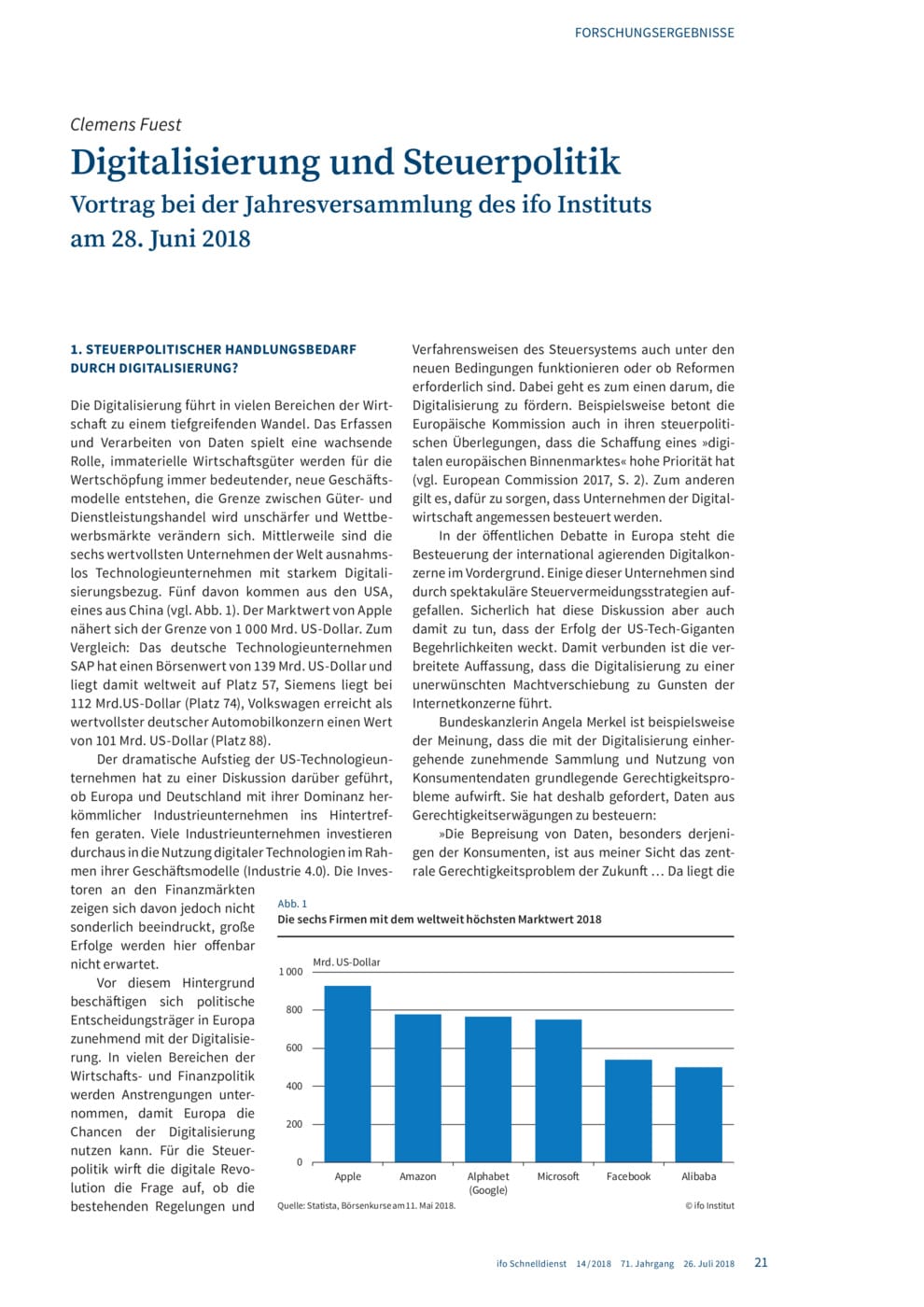Digitalisation and Taxation Policy
ifo Institut, München, 2018
ifo Schnelldienst, 2018, 71, Nr. 14, 21-25

Digitalisation is triggering far-reaching change in many branches of the economy. Data collection and processing is playing an increasingly crucial role, the importance of intangible assets is growing steadily, new business models are emerging, the borders between trade in goods and services are blurring and competition markets are changing. The world’s six most valuable companies are now, without exception, technology companies with close links to digitalisation. Five of these companies come from the USA, and one from China. The economic changes accompanying the digitalization of the economy also impact taxation policy. However, the proposals to introduce a European digital tax that are currently under discussion are misguided. The arguments and figures put forward by the European Commission that it uses to support the thesis of an undesirable difference in tax treatment in favour of digital players are partly misleading. The fact that several US technology companies - with business models that can be qualified as digital to differing degrees – are earning a great deal of money in the EU is not sufficient reason to tax them more heavily in the EU according to the current principles of international taxation. Instead, taxation policy in Europe should focus on the proper collection of sales tax that includes digital services too. There is no reason not to look at new concepts like that of the digital permanent establishment, or a value-added tax on data provision as part of the rules on exchanges. However, these concepts should be approved at an international level and cannot be expected to generate significant additional revenues.